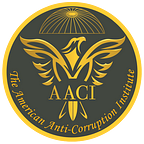The London Bullion Market Association (LBMA): Dubai and Other Countries — Meet Our Standards or Blacklisted.
Technical Staff
November 12, 2020
Reuters reported an exclusive story about one of the dirtiest schemes of money laundering: Conflict Gold. Dubai is at the core of the letter that was issued by The London Bullion Market Association (LBMA).
The London Bullion Market Association (LBMA)
What Is All About?
It is all about money laundering. As the diagram below shows, the ten gold refineries of Dubai are not certified by LBMA. LBMA requested the refineries of Dubai and many other refineries in many other countries too (a) declare publicly its commitment with the LBMA standards and (b) send LBMA a compliance action plan.
“A lack of cooperation or unwillingness to publicly commit to these standards and share a proposed timeline with the LBMA will mean LBMA may no longer permit GDL Refiners to source material which has originated from or passed through the International Bullion Centre,” the letter said.
LBMA
Understanding Money Laundering Risks in the Conflict Gold Trade — From East and Central Africa to Dubai and Onward
It is the title of an advisory report issued by The Sentry in early November 2020 addressing in detail the relationship of the conflict gold and Dubai.
The following are The Sentry Recommendations:
1. The UAE government should close the regulatory loopholes that allow for trade in conflict and high-risk gold. The US government, the European Union (EU), and gold industry actors such as the LBMA should engage the UAE’s authorities to require proof of payment for gold being imported into the country, require all gold refiners with a presence in the UAE to undergo independent, third-party audits, and ban cash transactions for gold above small amounts.
2. The UAE government should address priority issues from the latest FATF evaluation relevant to the conflict gold trade. 16These include increasing the collection and use of financial intelligence; better educating designated non-financial businesses and professions (DNFPBs) on suspicious transaction monitoring and reporting obligations; implementing better mechanisms to allow for investigating cases of suspected money laundering; and enhancing understanding of “immediate and pressing” threats, 17such as the foreign proceeds of crime.
3. Gold refiners and electronics, jewelry, and automotive companies should conduct enhanced due diligence on their suppliers and refer to the red flags in the FATF gold typology report, as well as those listed in this advisory, to assess risks when purchasing gold from the UAE.
4. Financial institutions should carry out enhanced due diligence on customers who deal in gold, including miners, refiners, jewelry shops, and gold traders. This should include enhanced transaction monitoring in line with a risk-based approach, particularly around related-party transactions and for payments to or from countries listed in this advisory as source, transshipment, or destination.
Based on The Sentry report mentioned above, the following is a diagram that shows where the conflict gold comes from and its flows to Dubai.
Dubai: Corruption and Illicit Financial Flows
In July 2020, we published a blog about the report issued by The Carnegie Endowment for International Peace where it said:
Corrupt and criminal actors from around the world operate through or from Dubai.
The Carnegie Endowment for International Peace, July 2020
Originally published at https://blog.theaaci.com on November 12, 2020.
